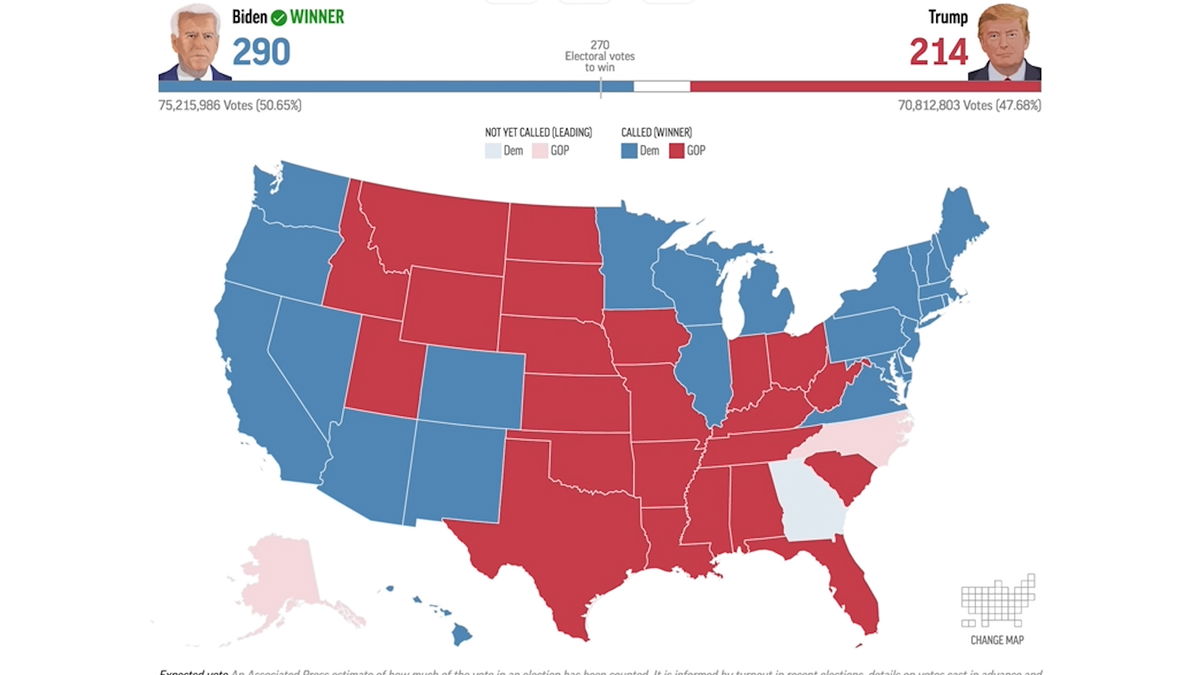The Electoral College: How it works and what happens next

Many across the nation were glued to the election results coming in last week, watching as both presidential candidates won major victories in battleground states.
Both candidates also picked up some of our most populous states: President Trump picked up Florida -- worth 29 electoral votes. And Texas -- worth 38.
Former Vice President Joe Biden picked up New York and coveted California: a total of 84 electoral votes.
Ultimately Biden surpassed the 270 votes needed, becoming the presidential elect.
How is the number of electoral votes per state decided?
News Channel 3’s Madison Weil sat down with UCLA political science professor Dan Thompson, who explained why each state has a designated number of votes.
“Each state is given two electors for their senators and one elector for each member of congress,” said Thompson.
For example, here in California, our 55 electoral votes come from our two state senators plus our 53 house representatives.
“In the vast majority of states, the winner of the state popular vote in that state receives every single one of the electors,” said Thompson.
In other words, since the majority of people in California voted for Biden, Biden received all 55 of California’s electoral votes.
Can a candidate win the Electoral College but lose the popular vote?
Yes. Under this system, it’s possible that a candidate could win the Electoral College but lose the nationwide popular vote, as we saw in 2016 with Donald Trump and Hillary Clinton.
“In 2016 What we saw was Donald Trump won by relatively small margins in Wisconsin, Pennsylvania, Michigan...those narrow wins are just as valuable to him, as are Clinton’s very large wins in California and New York,” explained Thompson.
What happens after a candidate surpasses 270 electoral votes?
So what happens now? Thompson says in December, the electors will formally cast their ballots.
“Is there any chance the electors might change their votes between now and then?” asked News Channel 3’s Madison Weil.
“There are occasionally faithless electors...those who are instructed by their state to vote for candidate A and instead vote for candidate B,” said Thompson. “But they have not been pivotal in any recent election and there’s no reason to expect them to be this year.”
Congress meets in January to count the electoral votes. Inauguration Day is set for January 20th, 2021.
